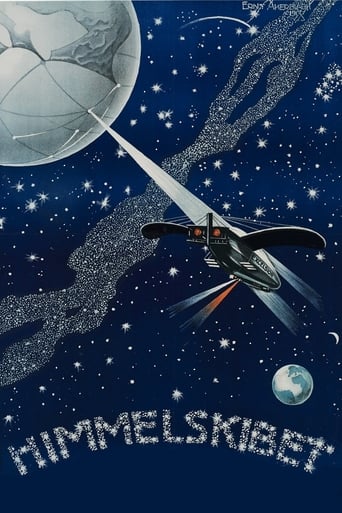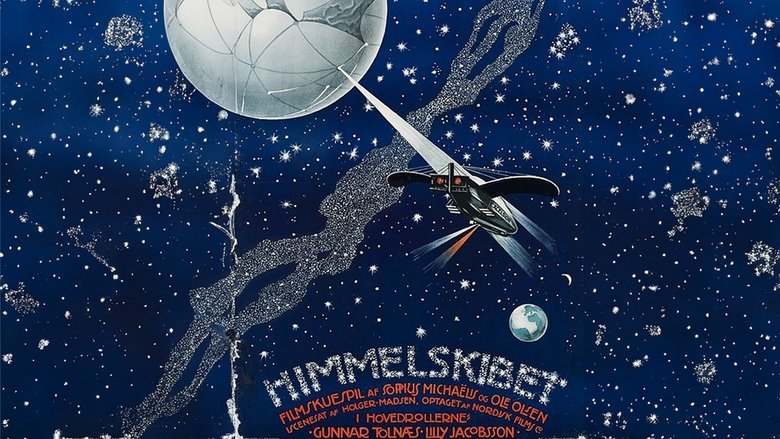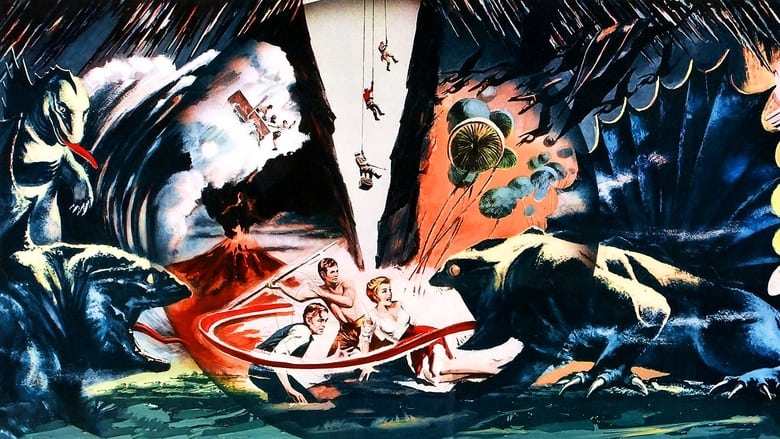The navy captain Avanti Planetaros is inspired by his astronomer-father to travel through outer space to reach other worlds. He becomes an aviator and, along with the young scientist Dr. Krafft, the driving force behind the construction of a space-ship. Despite oppostion from the mocking Professor Dubius, Planetaros gathers a crew of fearless men and takes off. During the long voyage, the crew becomes restless; a mutiny is narrowly avoided. Finally, they reach Mars and discover that the planet is inhabited by people who have reached a higher stage of development, free of diseases, sorrow, violence, sexual urges, and the fear of death. Avanti falls in love with Marya, daughter of the Prince of Wisdom, the head of the Martians. Marya shares his feelings and decides to return with him in order to bring the wisdom of the Martians to the backward Earthlings. (stumfilm.dk)


Similar titles

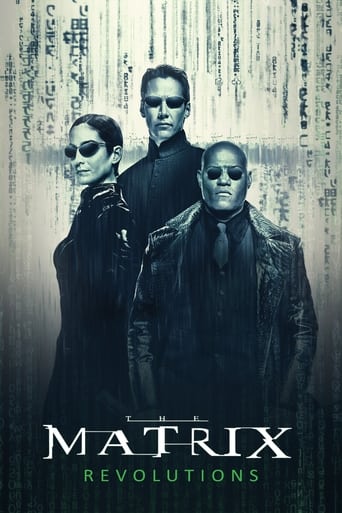

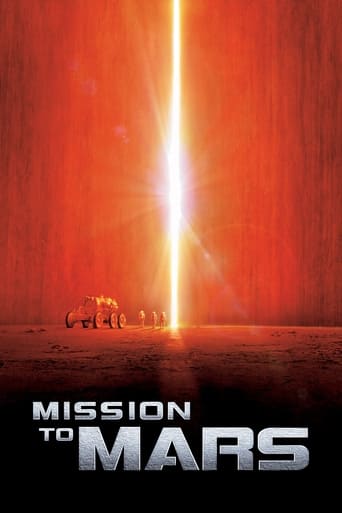
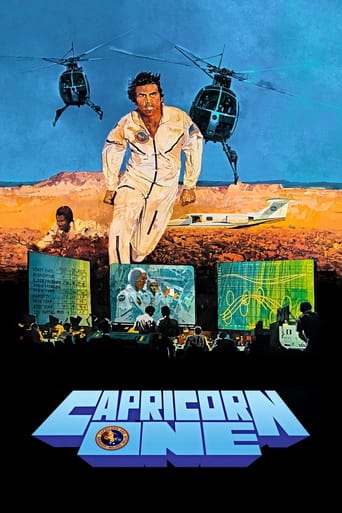
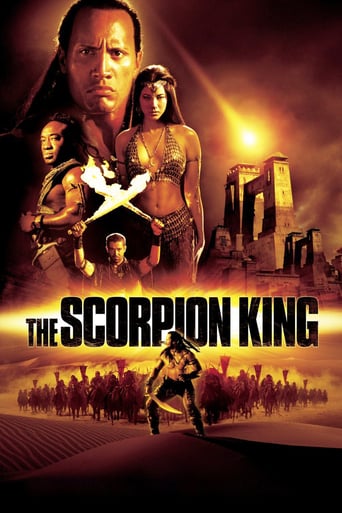
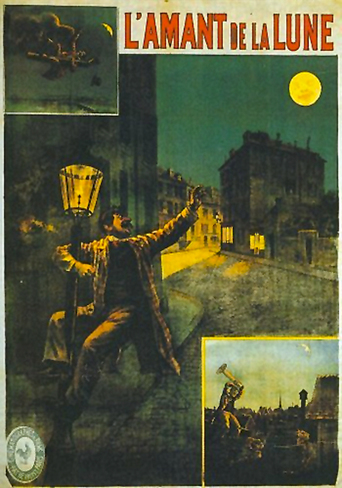
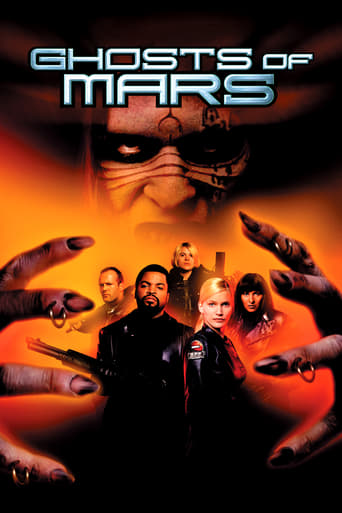

Reviews
I do not know how planet Mars turned into a source of horrors and ugly aliens, after receiving the name of the Roman god of war or being represented in a flattering and intelligent way in this magnificent Danish motion picture. It tells the story of a group of men who follow an inspired pilot who has envisioned his life mission in a sidereal trip to Mars, without imagining what he and his crew were going to find. And what they find up there, by 1918 standards, is amazing: a peaceful community that abstains from killing men or animals of any kind, whose main sources of nourishment are fruits, who have the power to regenerate life, induce healing dreams and aspirational thoughts. After causing havoc with guns and bombs, and after their beverages and canned dead meat are rejected, the men go through a process of adjustment and enlightenment. It doesn't take long for the leader to find his soul mate in Mars, and they all decide to go back to Earth to transmit the Martian philosophy of existence, that is summarized in the verses of the chant the planet's population sing as the travelers leave: space is the mother of life, as it embraces all our globes; we are all equal, we are all steps on the same ladder that leads to eternity; love is the force we humans call God, and only through Love we shall reach flawlessness. The Martians even urges us to get rid of lowly speech, which has become a plague in speech and writing, defiling communication and self expression. All this is done, seen and expressed through handsome images and special effects, in less than 80 minutes. The film even has a bit of humor in the depiction of the evil Professor Dubius (who is obviously dubious of the mission and its success), comically played by Frederik Jacobsen, even when being at his meanest; and the filmmakers also made a bit of social critique, representing irrationality and arrogance through an American character (David Dane, played by Svend Kornbeck), a boisterous, drinking fool, who organizes a mutiny in the spaceship. But while the Professor Dubius is punished, Dane is transformed by the Martian experience. In spite of a few unstable sets or the acting style of the day, this is an excellent film. Just as many may consider outdated the technical aspects of the science-fiction plot, or find ridiculous the tendencies of the cast to stretch out arms as if declaiming an epic poem, and to frequently kneel to suggest reverence, piety of humility, possibly in a hundred years from now the Method acting style of today and our notions of technology would be seen as laughable, so there is no reason why to make a fuss about these aspects and oversize the limitations that surge from the thought and knowledge of the time when "A Trip to Mars" was made. Highly recommended.
"For its time" is the big qualifier I'm applying to almost all the positive things I can say about "Himmelskibet", because, in my honest opinion, this movie's rather clumsily tackled themes and naive, overly saccharine messages have not aged very gracefully at all. The number one problem here is the portrayal of the alien race and their civilization. Instead of awing the viewer with the strangeness of an alien world, or challenging our earthly views and beliefs by having them clash with otherworldly philosophies, the makers opted for a community of both visually and culturally very mundanely human people whom we are still meant to perceive as vastly superior beings based solely on the fact that they've managed to transcend violent conflict. While this may indeed be a very advanced notion, this warless society is still portrayed as so primitive, so superstitious and so tribally ritualistic, that it simply fails to make the aliens seem truly above us earthlings. They come off like pacifist, primitivist cultists in ancient Greek attire. Not only is this rather boring from a sci-fi perspective, but it also makes it painfully obvious that this alien race serves nothing but a purpose and one purpose only: To be a vehicle for a blunt anti- war/pro-tolerance message. Moving on. One thing I definitely did like was the complexity of the story. There are many minor character developments and conflicts contributing to the whole (professional jealousy, for example, and a mutiny on the ship), rather than just one thick main plot thread, which is pretty unique for a movie of this vintage. Another thing is the overly expressive, theatrical acting performances that are so typical of the silent era, which I've always enjoyed. In this regard, "Himmelskibet" certainly delivers. The bad guys are characterized by dramatically evil mannerisms, while the good guys strike heroic poses and gaze wistfully at the sky. It conveys the moods and characterizations without any dialogue and is a lot of fun to watch.In closing, I can only urge everyone with even the slightest bit of interest in movie history to give this one a chance. You might enjoy it for the beautiful black&white photography and the interesting (albeit extremely rare) special effects, and you'll spot many (then novel) themes and ideas, which would later become staples, even clichés of the genre. However, those of you, who want a good, classic science fiction movie that has stood the test of time, are probably best advised to look elsewhere.
Sci-fi is a rapidly changing genre. It loses impact even more rapidly than horror. Therefore it's virtually impossible to see a sci-fi movie from the past (from the pre-space period, i.e. late 50s) that isn't laughable in some sense. First serious sci-fi epics appeared in the very early 50s, and bearing in mind the first space yarn was filmed by Melies in 1902, we get about 50 years of sci-fi without the very basic concepts of space travel. Where The Trip To The Moon can be dismissed as a funny experiment, The Trip To Mars cannot. This is a serious film. The makers didn't know about weightlessness or the absence of atmosphere in space, plus about a hundred more things we know today. That was the period, when everybody was raving about the channels on Mars, so they naturally assumed there was intelligent life on that planet. Melies shows frogmen and other strange creatures on the Moon; in 1924 there appears the still popular tinfoil dress for Martians in Russian film Aelita. So, in between, we get the Egypto-Greek fairy-tale world of this film: wise old priests being wise; and virgins prancing around, praising virtue in the world, where virtue obviously is as normal and unnoticeable as metabolism. Enter the Earthlings, introducing death and sin. Well, nothing spectacular follows: they soon are "cured" and learn the ways of the righteous. This film is a total orgy of enjoyment. The double feature released by the Danish Film Institute (together with a disaster film from 1916, The End Of The World) boosts their usual superior quality. The Danes began storing and archiving their films very early, so you get a very clean second generation copy from a period when most of US films withdrawn from circulation went to the glue or comb factory. It's a pity this film with so many different locations isn't color tinted. The rather uninspired piano accompaniment, another trade mark of the series from the DFI, tends to grow a bit tedious too. But nevertheless, a remarkable film and something you can show to your friends without being afraid that they'll think you're a weirdo.
I saw "Heaven-Ship" ("Himmelskibet") at the 2006 Cinema Muto festival in Sacile, Italy. What a great movie! This Danish steampunk saga is the stirring tale of the first trip to Mars, in an era when wireless telegraphy hasn't been perfected. The spaceship hasn't got a radio, and the heroes are brought back from the landing field via horsecart. Even the intertitles are delightful ... some of them written in rhymed couplets in the original Danish.The actors' performances are laughable, largely hand-to-brow histrionics. But the sets are astonishing, easily surpassing anything done by Georges Melies a decade earlier (or in "Die Frau im Mond" a decade later). Of course, the plot is simplistic. The spaceship's crew consist of seven thin guys and one fat slob. Guess which one cracks. Interestingly, everyone in this movie (except the dubious Professor Dubius) ardently believes in God. Even the Martians.Impressively, the scenarists have the sense to acknowledge that a trip to Mars is no doddle: the title cards establish that it takes the scientists two years to build their spaceship (which has an airscrew) and six months to reach Mars. During the construction sequence, there's one extremely impressive set-up which must have been choreographed: dozens of workers all hustle through the worksite in different directions, with no hesitations and no collisions. The Danish scientists christen their ship "Excelsior" ("packing materials"?) and set course for Mars, even though the Moon and Venus are closer. When the ship (which flies horizontally, not vertically) lands on Mars, it is greeted by "Marsboerne" -- Martians -- who turn out to be Nordic blondes, all highly-developed pacifists and vegetarians. (As a highly-developed meat-eater, I resented that part.)Conveniently enough, Mars turns out to have an atmosphere just like Earth's, as well as equal gravity. In an exterior shot of the Martian landscape, the Sun's apparent magnitude when seen from Mars is the same as it is when viewed from Earth. I also couldn't help observing that all the wise elder Martians are male. In fact, female elders are thin on the ground here: both the Earth-born hero and the Martian maiden are motherless. The Martians speak a universal language, wear ankhs on their robes, and greet the Earth visitors with a globe of Earth ... which of course they hold with its North Pole upward.That Martian maiden is Marya, played by an ethereally beautiful Danish actress. (Waiter, I'll have some of that Danish!) We see a Martian dance of chastity which might have been twee or ludicrous but is actually quite touching and beautiful. Also, the Martian funeral scene features one shot which reminded me of a sequence in "The Seventh Seal". I wonder if Ingmar Bergman saw this film."Himmelskibet" has a few flaws, but its production design and its other merits very far outweigh its drawbacks. The Ole Olsen who is named in the credits (and who appears in a brief prologue) is no relation to Chic Johnson's vaudeville partner from "Hellzapoppin". I would give "Himmelskibet" a 12, but the scale tops off at 10 ... so, a full 10 out of 10 for this delightful trip to Mars, the blonde planet!
